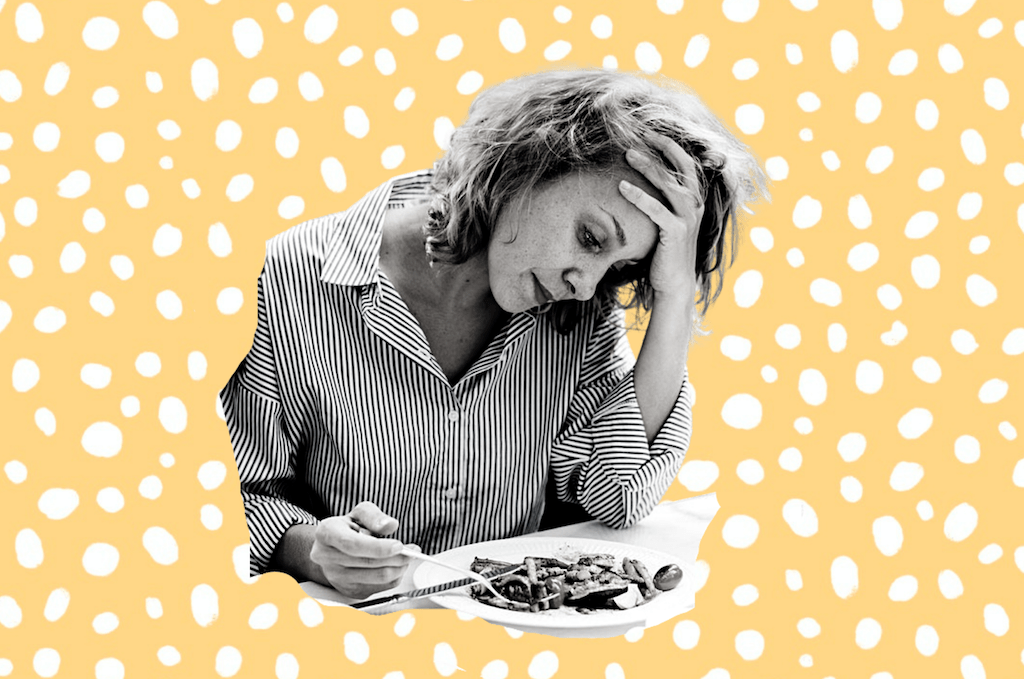As reported by the Guardian in February of this year, psychiatrists have been warning of a “tsunami” of eating disorder patients, partly brought on by the pressures of lockdown and the isolation experienced during the pandemic.
Dr Agnes Ayton, the chair of the Eating Disorder Faculty at the Royal College of Psychiatrists warned in the report that “eating disorders were rising due to people feeling out of control, and that they also thrived in the isolation accompanying the pandemic lockdowns.”
Though most will know that anorexia is an eating disorder characterised by a patient’s obsessive fear of weight gain and subsequent extreme measures taken to lose weight, and despite awareness campaigns, there are still myths about anorexia that persist in popular culture.
Below are some of the most common misconceptions that may delay someone from seeking treatment.
MYTH: ANOREXIA IS A CHOICE
Truth: Anorexia is not a lifestyle choice. Eating disorders are unfortunately sometimes portrayed as a person’s desire to be slim for vanity purposes. However, this couldn’t be further from the truth.
Anorexia is a complex medical and psychiatric illness. People with this condition do not choose this life-altering mental health condition. In fact, the causes are complex and often hard to pin down.
As explained by National Eating Disorders, “Current thinking by eating disorder researchers and clinical experts holds that eating disorders are caused by both genetic and environmental factors; they are bio-sociocultural diseases”.
MYTH: PEOPLE SUFFERING FROM ANOREXIA DO NOT EAT
Truth: People with anorexia do eat. However, they have what can feel like a never-ending battle with their hunger, and their desire to eat food with fewer calories. As a result, patients and sufferers may severely restrict themselves of their daily recommended calories, and often exercise excessively to counteract any calories they have eaten. In short, anorexia isn’t purely about denial of food, but rather, an obsessive monitoring of diet and exercise.

MYTH: ONLY THE UNDERWEIGHT SUFFER FROM ANOREXIA
Truth: Looks can be deceptive and a study by the Stanford School of Medicine explains that those with a BMI that falls within the range of what’s considered ‘normal’ can still be suffering from anorexia.
The list of anorexia symptoms does not only refer to body weight. It includes restricted eating, reluctance to gain weight, relating self-worth to appearance and body shape, and is not entirely associated with low body weight. In fact, you can’t diagnose and identify anorexia by appearance alone.
Read: 6 IDEAL ways to stick to a healthy diet
MYTH: MEN DO NOT SUFFER FROM ANOREXIA
Truth: Men are not exempt from society’s seemingly pervasive pressure to fit a normative body shape and can experience dissatisfaction with their appearance just as much as other genders and gender identities. Men too may suffer from anxiety of eating disorders or anorexia nervosa, which is at times debilitating. However, male fear of the stigma surrounding the condition can make them reluctant to seek treatment until their symptoms have worsened significantly.
According to research by National Eating Disorders Association, ‘’At any given point in time between 0.3-0.4% of young women and 0.1% of young men will suffer from anorexia nervosa.’’
MYTH: IT IS A PHASE THAT ONE CAN OUTGROW
Truth: While anorexia typically begins during a patient’s teenage years, it also affects adults of all ages. Anorexia is a challenging disorder that can best be treated if the sufferer takes steps to combat their harmful thoughts and behaviours. Unfortunately, these destructive thoughts are difficult to change; without treatment or intervention, these negative patterns may continue into adulthood and will not disappear with age.
This perpetuation that anorexia is a phase that one can outgrow is harmful as it can hinder early intervention and in fact, discount intervention altogether.
MYTH: ANOREXIA NERVOSA IS INCURABLE
Truth: For many, anorexia feels like a merry-go-round they can’t get off. The good news is that it is manageable and even curable. The earlier anorexia is diagnosed, the better your prognosis for full recovery and success will be, as with most illnesses.
Studies show that if a patient undergoes treatment and continues with it for an adequate amount of time, there is a high chance of achieving complete recovery as long as they are committed throughout their therapy process.
TREATMENT OPTIONS
Now that we have cleared some of the myths about anorexia, let’s talk about some of the available treatment options. While the NHS explains that recovery will be different for everyone, and a treatment plan will be tailored to an individual, some treatments include:
COGNITIVE-BEHAVIORAL THERAPY
CBT is a therapy that helps people identify their negative thought patterns and dysfunctional behaviours. The therapist then teaches the patient how to change irrational thoughts before developing new ways of coping with stressors, all while making the person feel at ease for them to be receptive to what they’re learning.
Read: 9 free mental health support services available during lockdown
NUTRITION COUNSELING
Nutrition counseling seeks to help restore more sustainable eating patterns and teach patients the importance of nutrition through balanced dieting that doesn’t deprive your body of what it needs.
When you are suffering from anorexia, it can be hard to know where to turn. You may need therapy services with a counselor or psychologist who can help you overcome your symptoms and any underlying problems which could be causing them.
You can also talk in confidence to an adviser from eating disorders charity Beat by calling their adult helpline on 0808 801 0677 or youth helpline on 0808 801 0711.
MEDICATION COMBINED WITH THERAPY
Your GP or other registered healthcare professional may prescribe antidepressants to help address issues of depression and anxiety stemming from – or causing – anorexia. It should be noted that medication alone is rarely effective, but can be useful when combined with psychological therapy.
*This article is not intended to replace medical advice, diagnosis or treatment given by a qualified mental health professional. Instead, this article only provides information, not advice. For any medical enquiries, always consult your GP first. What’s more, the NHS have a page dedicated to anorexia, including a list of useful contacts. Do check it out*





